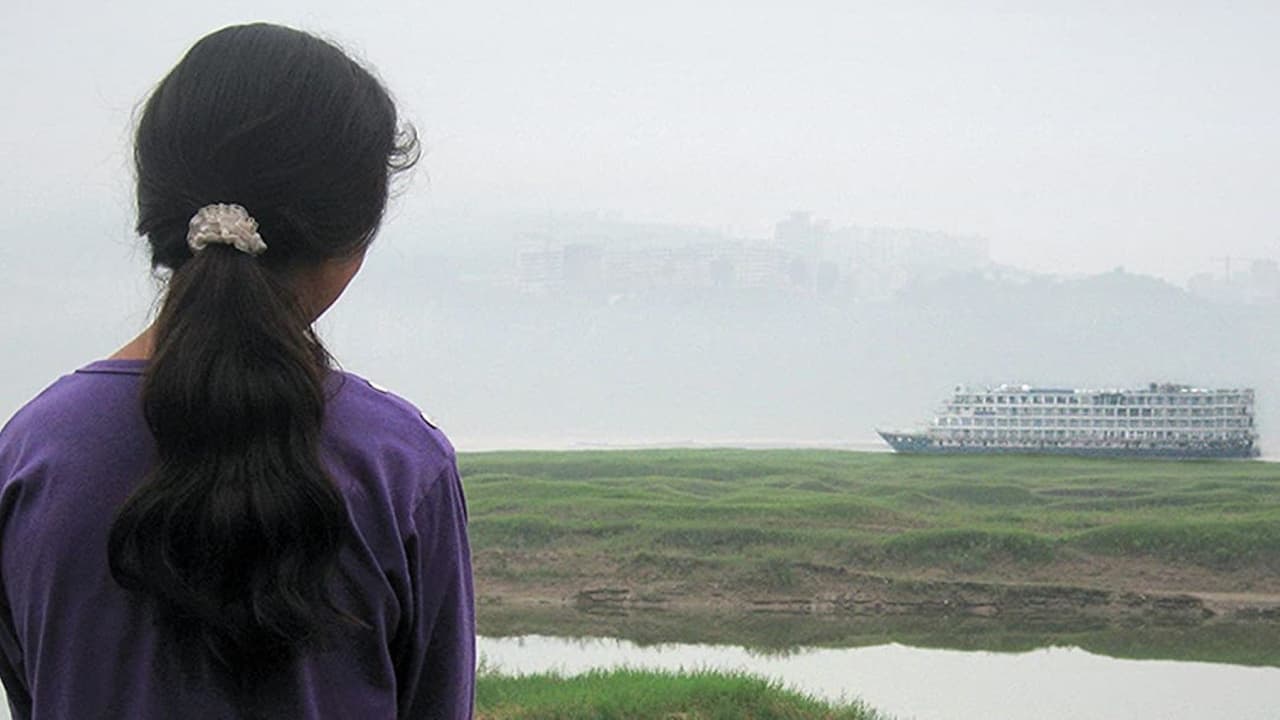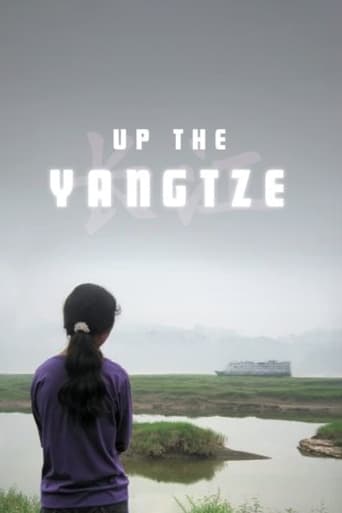



Really Surprised!
Clever and entertaining enough to recommend even to members of the 1%
View MoreThe movie turns out to be a little better than the average. Starting from a romantic formula often seen in the cinema, it ends in the most predictable (and somewhat bland) way.
View MoreThrough painfully honest and emotional moments, the movie becomes irresistibly relatable
View MoreThe Three Gorges Dam is one of the most impressive architectural projects of this decade. I've never been to China, so I've been forced to appeal to various Western resources about it. All sorts of environmentalist critiques are available, even from such mundane places as youtube. Those of that viewpoint lament the loss of habit for the Chinese river dolphin and other typical claims. This view doesn't require much thoughtfulness to reach and ignores China's economic struggle for modernization. The libertarian viewpoint harshly condemns forced relocation of millions of peasants. I find the latter an issue irrelevant to those living in community-centric China. The business manager (of my university organization) is a Chinese citizen and once told me that her people "conform," for lack of a better word, to what others expect of them. She cannot wear a tank top in public because everyone will stare questioningly at her. So, from her stories, and my own off and on research, I wanted to learn about Chinese citizens' reaction to Three Gorges Dam. I didn't think it would bother people in the way Westerners claim. I never expected to find such an illuminating answer so quickly. It's like how I felt the first time I watched Batman Begins.Most residents, by the time Up the Yangtze was filmed, had already relocated. The project was completed October 30, 2008, so no one still lives along riverside like previously. Director Yung Chang, also narrator, tells us how he realized a while ago that old China is dead. What people see in their mind's eye, as they board river cruise boats, is China as depicted in Hong Kong martial arts movies and wuxia pictures. The Yangtze project is complete and China is modernizing. You can still travel luxuriously; getting service from young people like those shown in this movie, but you won't see what you want. China itself isn't sure of its future. One man interviewed says that he isn't sure if China is capitalist or communist now. As long as society progresses forward, its path is unimportant. A black cat or a white cat is fine, as long as it can kill mice.Most of the story follows a single impoverished family who lives in a hut beside Yangtze. They send their daughter to wait tables on a tour boat. Yu Shui doesn't adjust well to her new robotic life as maid. Other children don't either. Middle class kids are on board to advance themselves, while Yu Shui is on board to survive. Mr. Chang suggests that China's one child policy permits parents to mollify their male children. While what we see indicates this, I found similar effect in young women. While they were harder workers, they were more withdrawn. Everyone on that boat has to be from a small family, so they're sense of family community must be incredibly strong. Perhaps China's one child policy may have larger negative effect on human capital than it has positive environmental impact.When we aren't on deck, Chang shows us various clips of Chinese urbanization. Government officials show dumb Westerners new housing projects, built to accommodate relocated persons, and acknowledge that everyone residing there is "happy." Of course people are happy; they are still alive. Chang's documentary can be summarized by my preceding statement. It's like The Grapes of Wrath or Doctor Zhivago. The characters in both those books (and films) experience tremendous hardship. When your family is tossed around, all you care about is keeping it intact. Chang does show us that older, single people do feel nostalgic regret at having to leave their ancestral homes. Even then, they aren't rallying against their government.Up the Yangtze is too limited to be the authoritative "Three Gorges Dam" documentary. By following Yu Shui's family, Chang shows us what we could probably have deduced from reading an amateur film review. I hope his next project will be more inclusive of all people affected by "an issue." A documentary about middle class people living in Shanghai would be unique but not inspiring.
View MoreSorry if you were looking for Wall-E or something else 'feel good', this is a documentary focusing on two young people at the center of change in China. The Three Gorges Dam, at the time of filming was beginning to flood areas where about 2 million people were being displaced, as we are told, for the good of the country, which appears a phrase parroted enough in the belief it will come true.'Jerry' is a Have, while 'Cindy' is a 'have not.' Both seek employment on a cruise ship for western tourists. Little is told of Jerry's family, which is apparently better off than Cindy's, which the film focuses on. Cindy's family are poor farmers who are doing fairly well, but know everything will change when their home and fields will be flooded. The hardship of change is clear and Cindy works hard to help support her family. Jerry doesn't show the same work ethic, which leaves the viewer to draw their own conclusion of traditional vs. modern values.Quite a lot of detail on modern China is available to the viewer, including frequent complaints of corruption. I was moved considerably by the contrasts and the snips of history, which show not all have prospered in modern China, though there is again parroted belief that anyone can succeed. It was also a bit surprising to see in China High School education is not a given for everyone.I found this to be a very informative and well done documentary and highly recommend it to anyone wishing to see the changes and impact of this dubious national project.
View More"Up the Yangtze" is a documentary which is at its heart, about a poor Chinese family and the impact the Three Gorges Dam project is having on their lives. In a broader sense it is about a rapidly changing China and the huge disparity in rich & poor that exists there.The Three Gorges Dam is a colossal hydroelectric project. The hydro plant on the Canadian side of Niagara Falls, "wonder of the world", generates 2,300 MW of electricity. The Three Gorges project will be 26,000 MW, a dam two km wide, and when complete will displace 2 million people and empty about 9 large cities.One such displaced family is featured in the film. The daughter of the family goes to work on a cruise ship on the Yangtze which caters to rich Westerners. The story is told from the point of view of the daughter, and various people we meet along the trip.The film made me laugh, and cry a couple of times too. (Which was embarrassing because I watched it on an Air Canada flight to Vancouver) If you want to get a little window on what is going on in China right now, the corruption of officials, the disparity between rich and poor, the treatment of peasants by the government, beyond the newspaper headlines, then this film is for you.
View MoreThis cinema masterpiece is experience of Chinese not westerner story. I hope you will go to take in this experience and learn more about middle kingdom. This movie is fair and shows piece of Chinese life. Do not miss this masterpiece. It made me laugh it made me cry. It made me think about my homeland.this is from variety Asia online: "If the title "Up the Yangtze!" suggests "up a creek!," it's no coincidence. China's Three Gorges Dam is considered by many experts to be a full-steam-ahead eco-disaster, but helmer Yung Chang's gorgeous meditation is more concerned with the project's collateral human damage: old farmers evicted, young people in servitude to Western tourists, all brought about by an endeavor whose collective weight may ultimately tilt the Earth's axis. A gloriously cinematic doc of epic, poetic sadness, "Yangtze" should be a hit on the specialized circuit and could break out, thanks to its embrace of irony rather than righteous indignation."i think this review is right. i'm very happy for this film and i think, as a Chinese, it is important to see all of the sides of our story. that way we can grow to learn to be better.
View More